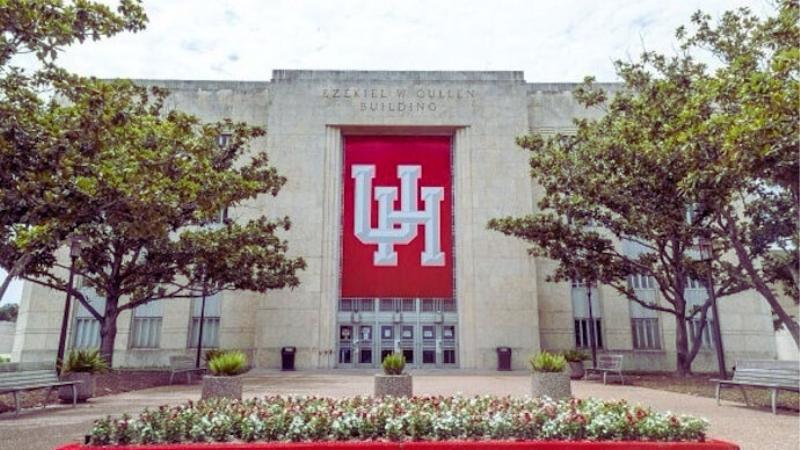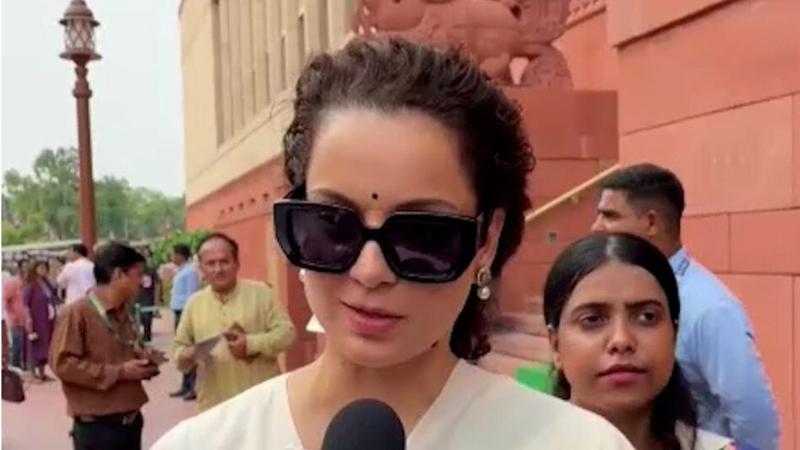
The University of Houston has responded to controversy surrounding a course titled Lived Hindu Religion, which was criticized by a student as being “Hinduphobic” and politically biased. In an official statement released via ANI on March 28, the university firmly reiterated its support for academic freedom and the role of scholarly inquiry in addressing complex and sometimes controversial issues. The backlash originated when Vasant Bhatt, a political science major and Hindu-American activist, raised concerns about the content of the course. Bhatt alleged that the course distorted India's political landscape and misrepresented Hinduism through terms like "fundamentalism" and critiques of "Hindutva." He further claimed the course promoted a biased view of Hindu traditions and fed into harmful stereotypes.
In response, the University of Houston emphasized that it values academic freedom as a core principle of higher education. According to the statement, faculty members are encouraged to explore multifaceted and sometimes contentious subjects, provided they do so in a manner that meets the university’s academic and pedagogical standards. While the university initially stated that it was reviewing the complaint, it clarified that individual lectures are not typically subject to administrative review unless there is a violation of academic norms. Oversight is maintained at the curriculum level to ensure intellectual integrity and compliance with established frameworks in each academic discipline.
Clarifying the Academic Context of Religious Studies
The university's dean and the director of religious studies engaged in discussions with Professor Aaron Michael Ullrey, the course instructor, to address the student's grievances. The university reiterated that the course is rooted in the academic discipline of religious studies, which applies analytical tools and critical frameworks to explore religious practices, ideologies, and movements. Terms such as "fundamentalism," frequently used in scholarly discourse, were identified as being part of a broader methodology used across religions including Christianity, Islam, Buddhism, and Hinduism. The university stressed that within this academic context, "fundamentalism" refers to a religious movement that aims to preserve what is seen as the 'true' form of a religion, often characterized by a literal, historical interpretation of scriptures and doctrines in response to modern social changes.
“This is not a judgment or bias, but rather a method of understanding how religious identities are shaped over time,” the university’s statement said. It also pointed out that such terms may hold different meanings in academic settings compared to public or political conversations, which can lead to confusion or misinterpretation. Professor Ullrey, who conducts the course online, addressed the media attention by clarifying that many of the quotes being circulated were taken out of context. In an interview with ANI, he stated, “I never said that Hinduism is a colonial construct or a system of oppression. I do not refer to Hinduism in essentialist terms, and I strive to offer a balanced academic perspective.”
According to Bhatt, one line in the syllabus mentioned that the term 'Hindu' is a recent designation not found in ancient scriptures. Another line suggested that "Hindutva" is a concept promoted by Hindu nationalists to define their religious identity in opposition to others. These excerpts, Bhatt claimed, amount to a targeted portrayal of Hinduism. Professor Ullrey countered this narrative by explaining that the syllabus includes references to socio-political phenomena like Hindutva not to criticize the religion itself but to analyze how religious identities interact with politics and social change. "We explore the evolution of Hinduism within historical, social, and political contexts. This includes discussion on Hindu nationalism, not as a blanket critique of Hinduism but as a case study in religious and political interplay," he said. The university also clarified that the course encourages connections between course material and current events, as long as these discussions are conducted in a balanced manner that enhances student understanding of religious discourse. Examining contemporary religious movements, including the political rise of Hindu nationalism in India, is part of this broader educational effort.
While the course has triggered a strong emotional response from some quarters, the University of Houston has drawn a clear distinction between the study of religion through academic frameworks and religious or political advocacy. The institution reaffirmed that it does not endorse any ideological position but supports critical inquiry and respectful dialogue as part of its educational mission. The debate reflects broader tensions about how religions, particularly those outside the Western mainstream, are represented in academic institutions. As religious studies increasingly engage with real-world events and political developments, maintaining a balance between analytical rigor and cultural sensitivity remains a complex challenge for educators. For now, the University of Houston is standing firm on its principles of academic freedom, even as it engages with the community to foster mutual understanding and uphold the integrity of scholarly discourse.












































